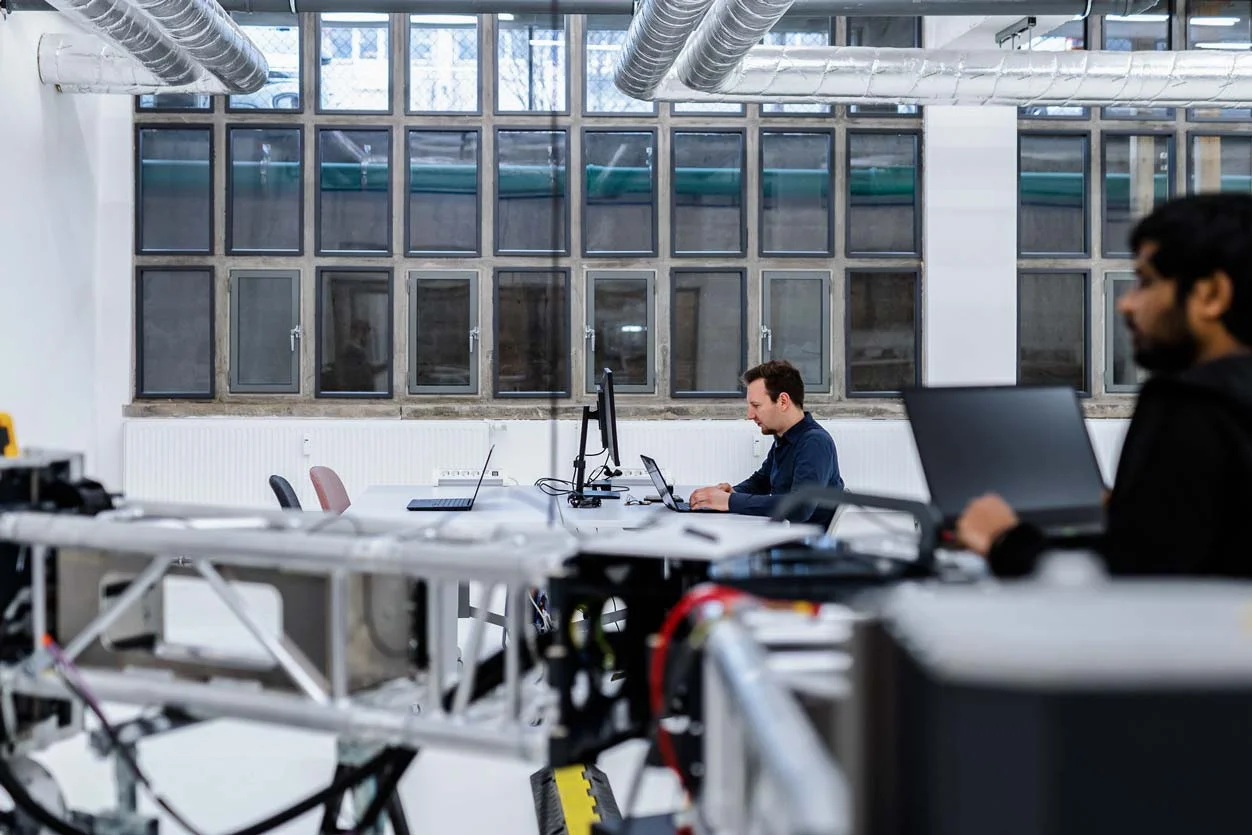
FOR CONVENTIONAL AND ORGANIC FARMERS
THRIVING
FARMS
As more than half of our core team grew up on a farm, we know what it means to be a farmer: a constant roller coaster of truly rewarding work and headwinds from all sides.
We strive to positively impact farmers by providing them with a tool that alleviates hard work, gives more planning security, and that frees up resources to gear up for the future. We support both conventional and organic farmers in transitioning towards more sustainable and intelligent farming practices.

For a healthier soil
Thriving
Envoirment
Agriculture is highly dependent on a healthy environment, but also puts pressure on it due to land use, greenhouse gas emissions and the intensive
use of chemicals and fertilizer.
Using robotics, we want to transform as many fields as possible to enable a healthier soil, more diversity and
higher productivity on smaller areas.

SOLIDARITY & ENVIRONMENTAL SUSTAINABILITY
THRIVING
BUSINESS
With our activities as a company, we can make the largest direct impact and we want to make the most out of it! We don’t define a successful business only by its growth or profit margin – we also assess what we contribute to the common good based on the values of solidarity, environmental sustainability, transparency, and human dignity.
We take full ownership of our business activities across the whole organization ranging from suppliers, investors, employees, customers, partners to the social environment.
Taking action
OUR CONTRIBUTION
TO THE SDGS








